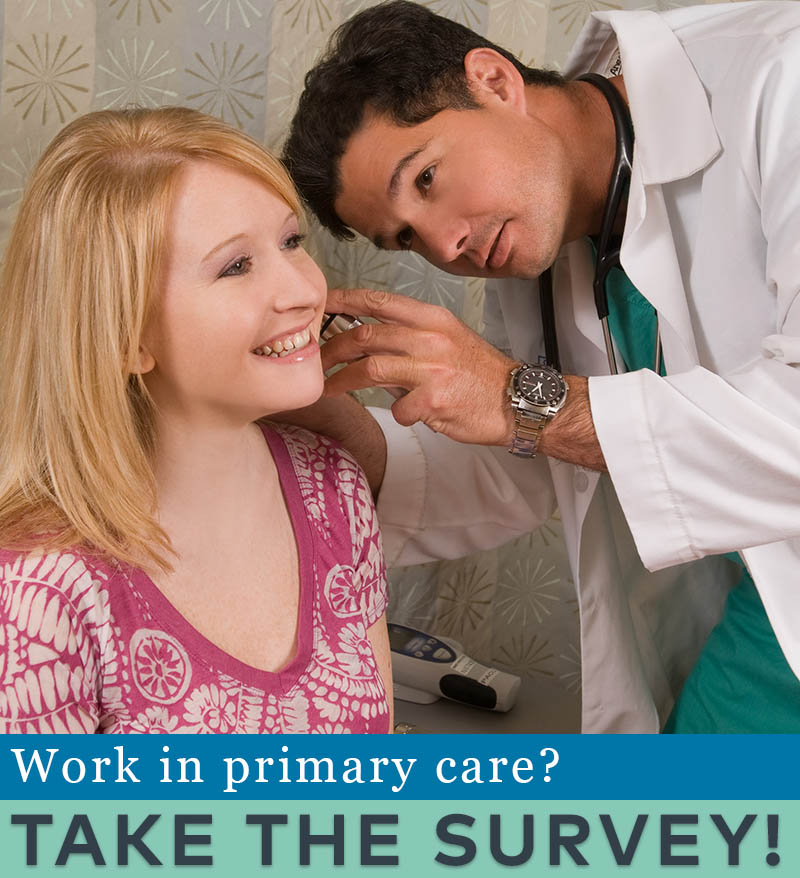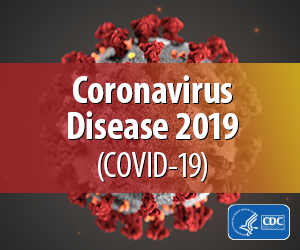Check back regularly for the latest survey results and updates.
For data from the previous survey, see Round 25 Results.
The Primary Care Collaborative is partnering with the Larry A. Green Center to regularly survey primary care clinicians and patients to better understand the impact of COVID-19 in real time.
Who replied to the survey in round 26?
910 primary care clinicians responded to the latest survey (Round 26). Responses came from 47 states, the District of Columbia, Guam and Puerto Rico. The highest proportion of responses came from Virginia (15%), Texas (11%), and Oregon (9%). Three-quarters of responses came from primary care physicians (MDs and DOs); nurse practitioners represented 16% of responses, followed by PAs (3%), Phd and PharmD (each less than 1%), and other (6%). That majority (70%) specializes in family medicine, followed by internal medicine (14%), pediatrics (6%), geriatrics (5%) mental/behavioral health (1%), pharmacy (<1%), and other (5%). 44% of respondents are employed by a hospital or health system; 31% are an owner or partner in their practice; 16% are employees of an independent practice; and 12% are self-employed. Nearly a quarter (24%) work in a rural practice, and 11% work at an Federally Qualified Health Center (FQHC) or FQHC look-alike. Over a third (35%) practice at a designated PCMH, and 7% describe their primary care setting as “convenience care.” Nearly 60% of respondents work at a practice with nine or fewer clinicians.
Round 26 of the clinician survey ran February 12-15, 2021.
Results at a glance
-
Much of primary care wants to vaccinate patients but lacks supply. Nearly half (47%) of respondents say their practice wants to administer the COVID-19 vaccine but cannot get access to it. Another 20% say they have received only a very limited supply. Despite challenges of refrigeration, documentation, and other barriers, just 11% of surveyed clinicians say that their practice does not want to be a vaccination site.
-
Local communication about the COVID-19 vaccine is often unclear or non-existent. Only a fifth (21%) of primary care clinicians report their local health department has initiated a reliable communication channel with their practice (or vice versa); whereas nearly 70% say the number of waiting lists and websites governing access to the vaccine is creating confusion. Only 2% of respondents say their practice has partnered with local pharmacies to prioritize patients receiving the vaccine.
-
Equitable allocation of COVID-19 vaccines is falling short. Few primary care clinicians say their communities are prioritizing vulnerable populations. Less than 10% believe minority communities are being prioritized, and only 11% say patients in communities with high positivity rates are being prioritized. (Nursing homes and long-term care facilities are the exception, with 70% saying that they are being prioritized.) Nearly a quarter (24%) of respondents say they “can make no logical sense” of the order in which people are being vaccinated in their community.
-
Patients are suffering in the pandemic—and not just those with COVID-19. The pandemic’s impact on health extends far beyond the immediate symptoms of the virus and even the long-term repercussions of avoided or delayed care. Sixty percent of surveyed clinicians have seen an increase in obesity among their patients during the pandemic. And over half say they “field weekly calls” from patients or colleagues who are experiencing a mental health crisis. Other related impacts include an increase in addiction prevalence (31%) and an increase in community violence experienced by patients (13%).
-
The pandemic’s personal toll on clinicians is rising. Over a third of respondents say they personally know clinicians who have quit or retired early because of the pandemic. Thirteen percent say they personally know clinicians who have died from COVID-19. More than a quarter (26%) report their own health has suffered greatly—both mentally and physically—during the pandemic.
-
Vaccine hesitancy continues—even among practices’ staff—but primary care believes it has a key role to play. Over a quarter (26%) of respondents report that non-clinician staff at their practice are hesitant to support COVID-19 vaccines. Surveyed clinicians estimate that, on average, 65% of their practice members (clinicians and staff) have been vaccinated to date. Yet 73% also say they have noticed their relationship with patients has been key to helping with their vaccine hesitancy.
Learn more: Download the Round 26 Clinician Survey Executive Summary (includes select open-ended answers to survey questions)
| Attachment | Size |
|---|---|
| 278.61 KB |

Are you a physician, nurse practitioner, or PA working in primary care?
Help PCC and the Larry A. Green Center track how your practice is responding to the COVID-19 outbreak by completing the Green Center's occasional survey.
The regular surveys are no longer being conducted.
COVID-19 Updates
May 9, 2022 | Primary Care Collaborative
April 19, 2022 | Primary Care Collaborative
April 19, 2022 | Primary Care Collaborative
March 7, 2022 | STAT
February 27, 2022
- 1 of 39
- next ›

Recent News
April 22, 2024
March 19, 2024
February 28, 2024
February 22, 2024 | Conversations on Health Care
May webinar highlights: “The Commercial Market: Alternative Payment Models for Primary Care” Nate Murray explains w… https://t.co/KX9Wi2w6oY —
10 months 2 weeks ago
@CMSinnovates’ primary care strategy is rooted in a 2021 @theNASEM’s report which called #primarycare “foundational… https://t.co/glbPxvCysg —
10 months 2 weeks ago
@CMSinnovates has a new #primarycare strategy, envisioning “ACO-based primary care model tests that may focus on pr… https://t.co/aJGF1z411l —
10 months 2 weeks ago
- Page 1
- ››
Secondary menu
Copyright © 2024 Primary Care Collaborative




